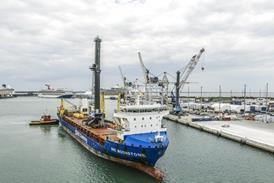The European Parliament’s Transport and Tourism (TRAN) committee has voted to support Europe-wide revisions of the rules and regulations governing the heavy transport sector.
The vote saw 30 of the TRAN committee’s 46 members back the measures which now move to the next stage - negotiations with the council - before possible implementation.
The directive’s revisions had been previously agreed by the TRAN committee and the parliament back in March. However, progress was stalled by the European elections in June and the post-election members of the new TRAN committee had to decide whether to continue as before or to start the revision process again. As a result of the vote, the process can now continue uninterrupted.
They include the long-awaited Europe-wide adoption of standard Special European Registration for Trucks and Trailers (SERT) documentation for abnormal load vehicle registration. These standardisation measures are intended to reduce the paperwork and bureaucracy faced by the industry.
Other measures include a ‘one-stop shop’ per country for permits, standardised permit application forms, use of electronic permits, harmonisation of escorting rules and vehicle markings, a ban on language requirements for drivers, and permitting systems to be available in all EU languages.
They are all contained in the revisions to the EU’s Weights and Dimensions Directive (96/53) currently under discussion. The directive sets the maximum authorised dimensions of heavy-duty vehicles used in national and international commercial transport and the maximum authorised weights of heavy duty vehicles used in international commercial transport.
This would mean member states cannot restrict the circulation of vehicles, which comply with these limits from performing international transport operations within their territories.
The revisions have been strongly supported by the European Association of Abnormal Road Transport and Mobile Cranes (ESTA). The move represents a culmination of a strong lobbying campaign.
“This is very good news indeed and the revised directive includes measures that ESTA has been requesting for many years,” said ESTA director Ton Klijn.
“There is still a lot of work to do to ensure that the measures are not diluted or even rejected during the final rounds of discussions. But it is clear that an increasing number of our politicians and regulators are beginning to appreciate the importance of our members’ work to Europe’s economy as a whole and are listening to our requests.”
In the run-up to the vote, ESTA had been calling on its members and the whole heavy transport industry to take immediate action to back proposed and essential EU transport reforms by lobbying their relevant national MEPs.
















